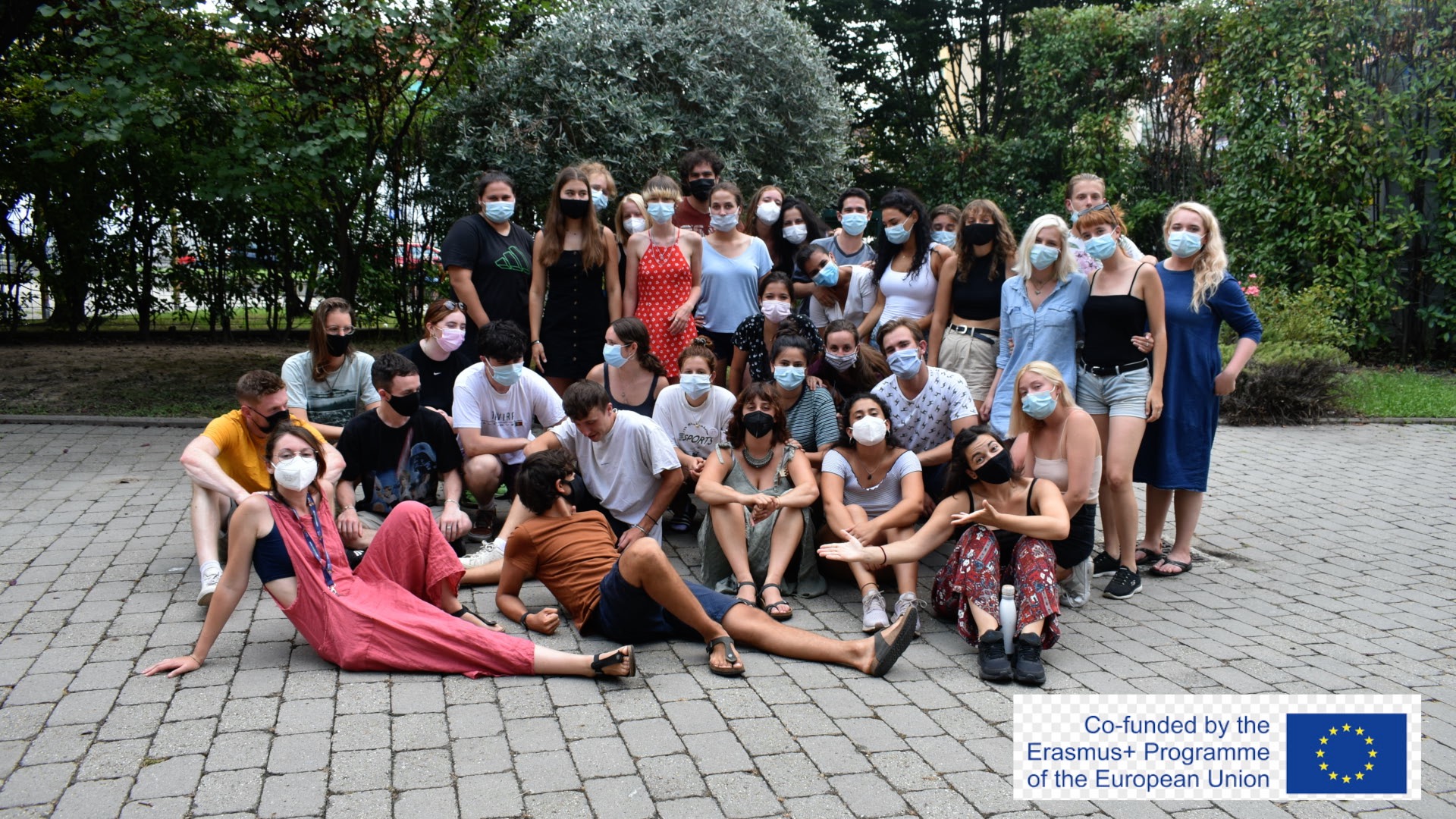
Youth Creativity for Europe
Nonostante le difficoltà degli ultimi due anni, siamo finalmente pronti ad ospitare il nostro primo scambio internazionale dopo l’emergenza Covid.
Abbiamo aspettato a lungo e ci siamo preparati ad accogliere giovani europei alla ricerca di nuove culture, riflessioni ma soprattutto nuovi amici. Da anni siamo impegnati nella costruzione di un’identità europea diffusa attraverso le esperienze del programma Erasmus + e anche quest’anno siamo riusciti ad organizzare una splendida settimana di collaborazione, responsabilizzazione e consapevolezza giovanile.
Lo scambio KA1 “Youth Creativity For Europe: Let’s imagine a common European memory” è composto da due parti: una prima fase: in Italia che ha visto il coinvolgimento di 6 paesi diversi per un totale di 36 giovani da tutta Europa per 7 giorni, che hanno riflettuto sul tema della costruzione di una memoria europea, utilizzando attività di educazione non formale e incontri con esperti.
La seconda fase si svolgerà in autunno a Tomar (Portogallo) e avrà l’obiettivo di ripartire da dove abbiamo lasciato, utilizzando l’arte come strumento per raccontare la storia di una nuova memoria europea comune e democratica.
Questa è la storia della prima settimana insieme …
È il 20 giugno e Casa Acmos si sta riempiendo di volti timidi ed eccitati. Vengono da Portogallo, Irlanda, Estonia, Polonia, Germania e, naturalmente, Italia. Siamo i primi ad arrivare a Boves e cominciamo a godere delle nostre differenze culturali quando scopriamo che alcuni di noi non sono mai stati in campeggio! È allora che inizia la collaborazione, proprio all’inizio, tra la costruzione di tende, il passaggio di scatole di cibo, sacchi a pelo, materassini e così via. La prima sera è molto rilassata, mangiamo la pizza, parliamo e ascoltiamo musica.
Il 21 giugno siamo pronti ad accogliere gli altri partecipanti del Campo di Boves, provenienti dall’Associazione Acmos e We Care.
Guardiamo tutti insieme il film “22 luglio”, una storia vera sul massacro di Utoya del 2011. È un film duro e toccante e in qualche modo ci siamo sentiti molto più vicini da quella sera. Il giorno dopo, il 22 luglio, abbiamo celebrato una commemorazione per coloro che hanno perso la vita durante l’attacco in Norvegia, accendendo 77 candele, una per ogni vittima.
Per i giorni successivi ci siamo divisi in gruppi, ogni gruppo è composto da persone di Acmos, We Care ed Erasmus+, tutti mescolati in modo da poter condividere i nostri diversi punti di vista ed esperienze.
I punti di partenza delle nostre riflessioni sono: “Cos’è la memoria per noi come individui? Cos’è la memoria collettiva? Cos’è la memoria istituzionale?”. Abbiamo un interessante incontro con Anna Mastromarino, docente di diritto costituzionale e comparato all’Università di Torino, che ci tiene una lezione molto interessante sulla quale abbiamo discusso i giorni successivi.
Venerdì 23 è il momento di conoscere il processo da cui è nata l’Unione Europea! Ci dividiamo in gruppi e andiamo a fare una bellissima escursione. Ci sono 10 sfide che dobbiamo vincere per arrivare alla fine della camminata. Ogni passo è un’attività che ci racconta qualcosa sull’Unione : quale paese è entrato, quando, quali sono i simboli europei, chi è Spinelli e cosa è successo a Ventotene, qual è l’inno dell’Unione Europea e qual è il suo motto, quali sono le istituzioni e infine perché non abbiamo una Costituzione Europea. Decidiamo che forse potremmo essere noi a scrivere qualche articolo di una possibile futura Costituzione europea e così facciamo: ogni gruppo si è preso del tempo per scrivere un articolo e il risultato è stato davvero sorprendente e interessante!
Il sabato e la domenica continuiamo a discutere di una memoria comune europea, mentre la sera ci godiamo la “Notte Internazionale“, in cui ogni gruppo internazionale presenta il proprio paese con danze, cibo e aneddoti divertenti!
Una volta tornati a Torino ci sentiamo molto più vicini di quando abbiamo lasciato la città! Abbiamo già molti amici e lunedì mattina siamo pronti ad esplorare Torino con una divertente caccia al tesoro! Visitiamo Porta Palazzo, la Mole Antonelliana, Piazza San Carlo e i Giardini Reali, per ogni luogo c’è un’attività pianificata dal gruppo italiano e alla fine ci godiamo il pranzo lungo il fiume. C’è un’atmosfera fantastica, tutti parlano, ridono e giocano.
Martedì 27: ultimo giorno. Ci incontriamo a Parco Dora dove facciamo un’ultima attività individuale in cui pensiamo a quello di cui abbiamo parlato la settimana scorsa, ognuno di noi scrive una lettera a sé stesso che il nostro responsabile di progetto ci manderà l’anno prossimo e poi facciamo una bella chiacchierata tutti insieme su come ci sentiamo.
Dopo il pranzo prendiamo i nostri Youth Pass e abbiamo un bel momento in cui scriviamo alcune note alle persone con cui abbiamo legato di più. Il pomeriggio è rilassante e approfittiamo del tempo libero per passarlo con i nostri nuovi amici internazionali. Ceniamo e usciamo tutti insieme, è un momento così gioioso e in qualche modo triste.
È incredibile quanto sia facile e interessante connettersi con persone di altri paesi, sognando e progettando un’Europa unita e pacifica in cui ognuno di noi abbia un posto e realizzando che anche se le nostre culture sono diverse, abbiamo ancora una casa comune di cui vogliamo prenderci cura, L’Europa.
Despite the difficulties of the last two years, we are finally ready to host our first international exchange after the Covid emergency.
We waited a long time and got ready to welcome young Europeans in quest of new cultures, reflections but above all new friends. For years we have been committed to building a widespread European identity through the experiences of the Erasmus + Programme, and this year too we were able to organise a wonderful week of collaboration, youth empowerment and awareness. The KA1 exchange “Youth Creativity for Europe” is composed of two parts; a first phase: in Italy that saw the involvement of 6 different countries for a total of 36 young people from all over Europe for 7 days, who reflected on the theme of building a European memory, using non-formal education activities and meetings with experts.
The second phase will take place in Tomar (Portugal) in autumn and will aim to start from where we left off, using art as a tool to tell the story of a new, common and democratic European memory. This is the story of the first week together …
It’s June 20th and Casa Acmos is filling up with shy and excited faces. They come from Portugal, Ireland, Estonia, Poland, Germany and, of course, Italy. We’re the first ones to arrive in Boves and we start enjoying our cultural differences when we figure out that some of us have never been camping before! That’s when cooperation starts, at the very beginning, between building tents, passing boxes of food, sleeping bags, materasses and so on. The first evening is very relaxed, we eat pizza, we talk and listen to music.
On June 21st we’re ready to welcome the other participants of Boves Camp, coming from Acmos Association and We Care.
We watch all together the movie “22 July”, a true based story about the Utoya Massacre in 2011. It’s a harsh and touching movie and somehow we already feel much closer that night. The day after, on the 22nd of july, we have a commemoration for those who lost their life during the attack in Norway, we light up 77 candles, one for each victim.
For the next days we are divided into groups, each group is made of people from Acmos, We Care and Erasmus+, all mixed so that we can share our different points of views and experiences.
The starting points of our reflections are: “What is memory for us as individuals? What is collective memory? What is institutional memory?”. We have an interesting meeting with Anna Mastromarino, a constitutional and comparative law professor at University of Turin, who gives us a very interesting lecture on which we discussed the days after.
On Friday the 23rd it’s time to learn about the process from which European Union was born! We are divided into groups and go on a beautiful hike. There are 10 challenges we have to win in order to arrive at the end of the hike. Each step is an activity which tells us something about the European Union: which country entered when, what are the symbols of European bills, who is Spinelli and what happened in Ventotene, what is the hymn of the European Union and what is its motto, what are the institutions and finally why we don’ have a European Constitution. We decide that maybe we could be the ones writing a few articles of a possible future European Constitution and so we do: each group took some time to write an article and the result was really surprising and interesting!
On Saturday and Sunday we keep discussing about a European common memory, while during the evenings we enjoy “International Night”, in which every international group presents its own country with dances, food and funny anecdotes!
Ones arrived back in Turin we feel so much closer then when we left the city! We have already many friends and on Monday morning we’re ready to explore Torino with a fun treasure hunt! We visit Porta Palazzo, Mole Antonelliana, Piazza San Carlo and Giardini Reali, for each place there’s an activity planned by the Italian group and at the end we enjoy lunch along the river. There’s an amazing atmosphere, everybody talking and laughing and playing.
Tuesday 27th: last day. We meet in Parco Dora where we have a final individual activity in which we think about what we talked about for the past week, each of us writes a letter to her/himself that our Erasmus+ leader will send us back next year and then we have a nice talk all together about how we feel.
After lunch we get our Youth Passes and have a nice moment in which we write some notes to the people who we connected the most with. The afternoon is relaxing and we take advantage of the free time to spend it with our new international friends. We have dinner and go out all together, it’s such a joyful and somehow sad moment.
It’s amazing how easy and interesting it is to connect with people from other countries, dreaming and planning a peaceful united Europe in which each of us has a place and realizing that even if our cultures are different, we still have a common home we want to take care, Europe.




